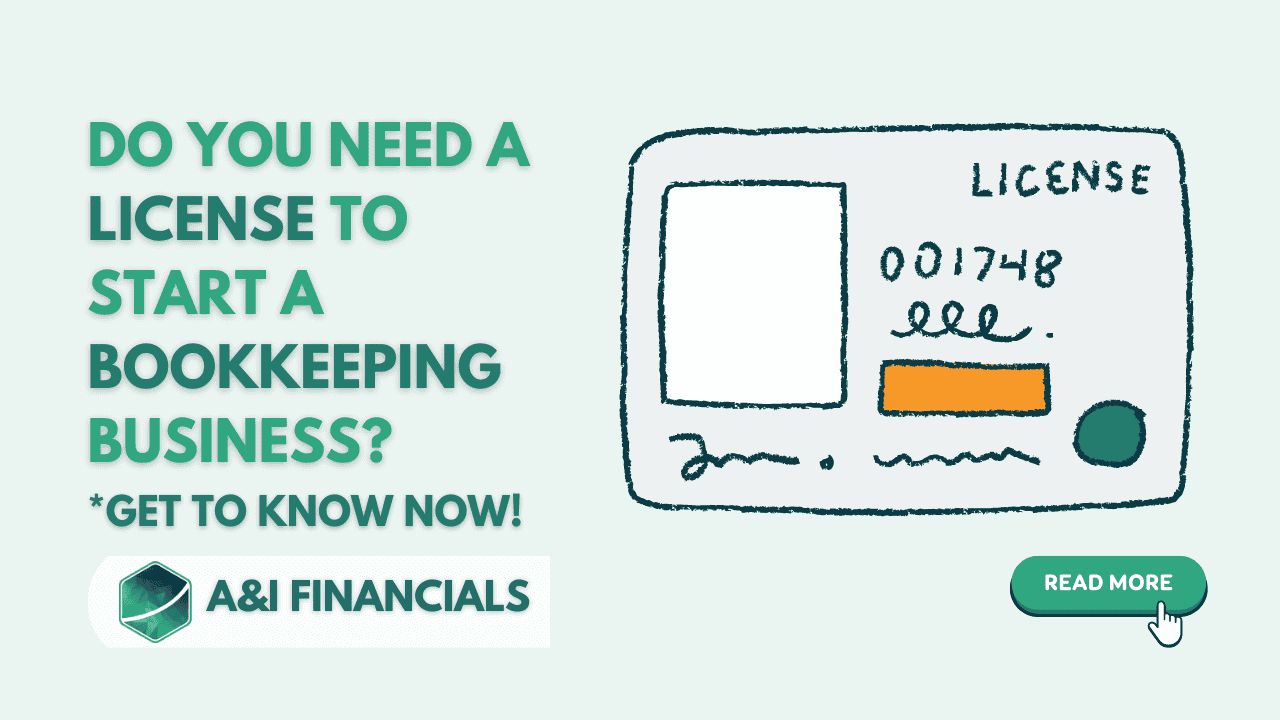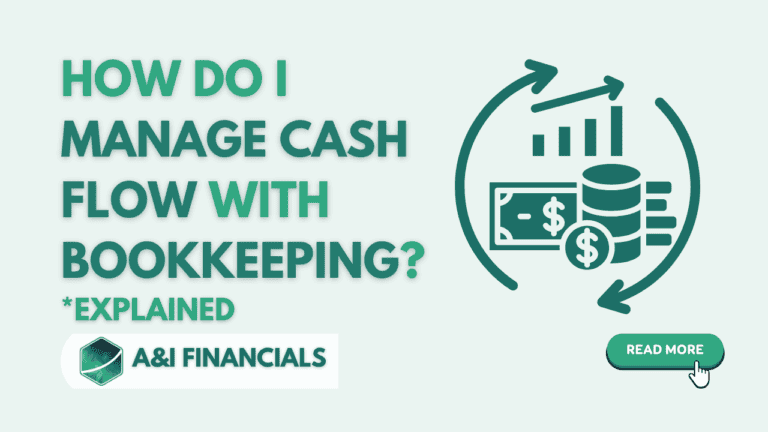Do You Need a License to Start a Bookkeeping Business? Required Certificates & Importance
If you’ve ever thought about starting a bookkeeping business, you’ve probably asked yourself: “Do I need a license to start a bookkeeping business?” The short answer is no, you don’t legally need a specific license to start a bookkeeping business. However, there are important steps and considerations to take before diving into this field. Let’s explore everything from the business structure to potential clients, making sure you have a clear path to success.
What Is Bookkeeping, and Why Is It a Great Business Idea?
Bookkeeping is the process of recording daily financial transactions, including sales, purchases, payments, and receipts, for a business. It’s the foundation of every business’s financial well-being. As long as companies exist, they’ll need bookkeepers to keep track of their finances. So, if you’re good with numbers and love organization, starting a bookkeeping business might be a perfect fit for you.
Why Start a Bookkeeping Business?
The demand for bookkeeping services remains constant, making it a reliable business opportunity. You don’t need a massive office or expensive equipment to start. Most of your work can be done remotely, and all you need is bookkeeping software and basic accounting knowledge. But here’s the real benefit: starting a bookkeeping business gives you the freedom to be your own boss. It’s a business that can grow over time and even turn into a successful bookkeeping enterprise.
Do You Need a License to Start a Bookkeeping Business?
As mentioned earlier, you don’t need a specific bookkeeping license to operate legally. However, you might need a business license to operate depending on your local regulations. Most states require a basic business license to operate any business, and bookkeeping is no exception.
Though there’s no mandatory certification to call yourself a bookkeeper, having credentials from a professional organization like the National Association of Certified Public Bookkeepers (NACPB) or the American Institute of Professional Bookkeepers (AIPB) can boost your credibility.
If you’re wondering why, it’s simple. These certifications can give potential clients confidence in your skills and expertise. Certifications show that you’ve passed exams and met professional standards in the field.
Is Certification Necessary?
Not exactly. Certification isn’t required by law, but it can be helpful when marketing your business. Think of it as a way to stand out from competitors. Becoming a Certified Public Bookkeeper or getting certified by the Institute of Professional Bookkeepers will help you attract more clients and increase your rates.
Steps to Starting a Bookkeeping Business
Now that you know you don’t need a license, let’s dive into the steps to starting a bookkeeping business. These steps will ensure you set up your business for success.
- Develop a Business Plan
The first step is always to create a business plan. This document will outline your business structure, goals, and financial projections. It’s important because it helps you stay focused and organized. Your business plan should include things like your services, pricing, and how you plan to find potential clients.
- Choose a Business Structure
Selecting the right business structure is crucial. Will you operate as a sole proprietor, LLC, or corporation? Each structure has its own tax implications and liability protections. Many bookkeepers start as sole proprietors because it’s the simplest and least expensive option. However, forming an LLC might provide more legal protection.
- Set Up Your Business Banking Account
To keep your personal and business finances separate, it’s smart to open a business banking account. This makes bookkeeping easier and gives your business a more professional appearance. A separate account also simplifies tax time and keeps things organized.
- Get Business Insurance
It might not seem necessary at first, but business insurance is an important layer of protection for your company. It safeguards you against any potential lawsuits or claims made against your services. General liability insurance is a common type for bookkeeping businesses.
- Invest in Bookkeeping Software
Next, you’ll need to choose bookkeeping software. This will be your bread and butter, so take time to find one that suits your needs. Many successful bookkeepers use cloud-based software like QuickBooks or Xero, which allow for easy collaboration with clients.
- Market Your Business and Find Clients
One of the biggest challenges in starting a bookkeeping business is finding your first potential client. Networking is key, so consider joining local business groups or online communities. You can also leverage social media, attend local events, or offer free consultations to get your foot in the door.
- Stay Compliant with Taxes
Although bookkeeping doesn’t require specific licensing, you must remain compliant with sales tax and other tax regulations for your business. A solid understanding of your tax obligations will prevent future headaches.
- Hire Employees (When Needed)
As your business grows, you may need to hire employees to manage the workload. Make sure you understand payroll, employment taxes, and legal requirements for hiring staff. This is where your knowledge of accounting software will come in handy.
Certification Options for Bookkeepers
Although certification is optional, it could significantly improve your business’s reputation. Here are some popular certifications:
- National Association of Certified Public Bookkeepers (NACPB): This certification proves you’re up-to-date on modern bookkeeping standards.
- American Institute of Professional Bookkeepers (AIPB): This certification focuses on practical bookkeeping knowledge, helping you stand out in the market.
These certifications don’t take long to complete and provide peace of mind to your clients. Plus, they look great on your resume or business website.
Popular Bookkeeping Certifications: Costs, Benefits, and Recertification Requirements
| Certification | Issuing Organization | Description | Cost | Recertification/Continuing Education |
| Certified Public Bookkeeper (CPB) | National Association of Certified Public Bookkeepers (NACPB) | A certification that covers essential bookkeeping knowledge and practices. | $600 for full certification (includes study materials and exam fees) | 20 hours of Continuing Professional Education (CPE) annually |
| Certified Bookkeeper (CB) | American Institute of Professional Bookkeepers (AIPB) | Focuses on the advanced skills needed to manage a bookkeeping business. | $740 for full certification (includes study materials and exam fees) | 60 Continuing Professional Education (CPE) credits every 3 years |
| QuickBooks ProAdvisor Certification | Intuit | Certification specific to QuickBooks software for bookkeeping and accounting. | Free for basic certification; $499/year for advanced ProAdvisor certification | Annual recertification required for ProAdvisor, no CPE requirements |
| Sage Certification | Sage | Provides certification in Sage accounting and bookkeeping software. | $150 for each certification level | Recertification required every 2 years |
| Xero Advisor Certification | Xero | Certification in using Xero cloud-based bookkeeping software. | Free for basic; paid for advanced certifications | No recertification required for basic, but recommended for advanced |
| Microsoft Office Specialist (MOS) | Microsoft | Certification in Microsoft Office Suite, useful for Excel-based bookkeeping tasks. | $100 to $150 depending on the certification level | Recertification required every 2 years |
Creating a Successful Bookkeeping Business
Starting a bookkeeping business requires more than just skills. You need to create a solid foundation that helps your business thrive. So, what sets a successful bookkeeping business apart from the rest?
- Focus on Client Relationships
Your success depends on building strong, trusting relationships with clients. Be sure to communicate clearly, meet deadlines, and provide value. Happy clients will refer you to others.
- Offer Comprehensive Bookkeeping Services
Expand your offerings to include more than just basic bookkeeping. Offering additional bookkeeping services such as tax preparation, payroll, or financial reporting can differentiate you from competitors.
- Keep Learning and Growing
The bookkeeping industry changes, especially with technology advancements. Stay ahead by keeping up with new bookkeeping software and trends. The more you learn, the more you can offer your clients.
Common Mistakes to Avoid When Starting a Bookkeeping Business
While starting a bookkeeping business is exciting, it’s easy to make mistakes along the way. Here are a few pitfalls to watch out for:
- Neglecting a business plan: Don’t skip this step. A solid business plan keeps you on track.
- Failing to separate personal and business finances: Always open a business banking account to avoid confusion.
- Ignoring insurance: Business insurance might seem like an unnecessary expense, but it’s crucial.
- Pricing too low: Know your worth! Don’t undercharge just to get clients. Offering professional bookkeeping services means you deserve fair compensation.
The Importance of Professionalism
Although you don’t need a license, professionalism is key to success in this field. Here are a few ways to present yourself as a professional bookkeeper:
- Use a dedicated business email rather than a personal one.
- Create a website to showcase your services and certifications.
- Join professional organizations such as the NACPB or the AIPB to show you’re committed to the industry.
These simple steps will help potential clients trust you and your business.
Conclusion: Do You Need a License to Start a Bookkeeping Business?
In short, no, you don’t need a specific license to start a bookkeeping business. However, following the right steps—like choosing a proper business structure, investing in bookkeeping software, and obtaining business insurance—will set you up for long-term success. Additionally, while certification isn’t required, earning credentials from organizations like the NACPB or AIPB can help you attract more clients and command higher rates.
Ultimately, starting a bookkeeping business is about being organized, offering value, and continuously growing your skills. With the right plan and dedication, you can build a successful bookkeeping business that not only meets your financial goals but also provides essential services to businesses in need. So, why not take the first step and explore this opportunity today?






